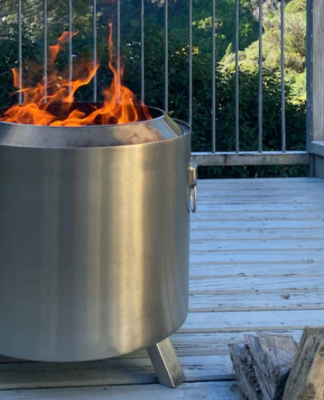Headaches behind the eyes are common due to underlying health problems ranging from eye strain to migraines. Pain behind the eye socket temple can affect one or both sides. It can be sensitive to light and other types of discomfort.
Everyone experiences headaches at one time or another, but pain behind the eyes can change your life. If you experience this condition regularly or daily, its frequency may indicate something more serious. Read on to learn more about the causes of such pain and how to treat it.
Introduction
Other symptoms may accompany pain Behind The Eye Socket Temple. This can be a sign of:
- Cluster headaches
- Tension headaches
- Repeated sinus headaches if you have allergies or sinus problems.
If you feel stress or tension, you may experience symptoms of headaches. Some people can be cured with over-the-counter painkillers. In comparison, others with migraine headaches can become so severe that they can’t continue working or enjoying their time. Such frequent problems may indicate a more severe condition and should be consulted with a doctor. You can consult an Eye Specialist in Peshawar
if you too have such a condition.
Causes
There are several possible causes of headaches behind the eyes. But there is a bit of trial and error before understanding the causes. To determine the cause of your headache, you must first consider the type of pain you have.
Migraine
Migraine usually occurs with extreme pain in the back of the eye. If you have a migraine, the trigger may look different from others who have a migraine. For many, migraine headaches are associated with:
- Stress and Anxiety
- Hormonal changes
- Poor posture
- Diet
- Dosing
- Environmental stimuli
They are often accompanied by nausea, weakness, tension, and mood swings.
Tension Headache
You may notice a tension headache after a long day of driving, staring at the screen, or something that requires close and continuous focus. Many people experience this type of headache on cold days. It can be caused by contractions in the muscles of the head and neck. Cluster headaches
Many people who suffer from it experience severe pain. Cluster headaches occur periodically, and men experience more headaches than females. Although familiar, doctors are unaware of their causes, except for possible genetic factors.
Sinus Headaches
This type of headache is most common during the season of allergies and other times when you experience a relapse of allergies. Many people will consider these types of headaches with sinus headaches. It is because their symptoms reflect many of the symptoms associated with migraine and cluster headaches.
Not all headaches fit neatly into one category, and headaches may occur behind the eyes for the following reasons:
Glaucoma
- Grave’s Disease
- Optic neuritis
- Scleritis
- Undiagnosed nearsightedness
- Eyestrain
- Illness or infection
- Hormones
- Stress
- Bright lights
- Strong smells
- Smoking
- Alcohol use
- Hunger
- Lack of sleep
Symptoms
The symptoms associated with headaches behind the eyes depend on the type of headache you are experiencing. Similarly, you may have migraine or tension headaches, but the signs are different.
Similar types of pain mostly occur with several different types of headaches, making it difficult for doctors to diagnose it without information about your lifestyle. To identify the headache you are experiencing, look for the specific symptoms associated with each.
- Migraine headaches go beyond headaches and may be accompanied by:
- Light and sound
- Nausea
- Weakness
- Mood swings
- Aura hypersensitivity before the headache begins.
These headaches usually occur on only one side of the head.
Tension Headaches can occur once or in a few months, after which doctors diagnose them as chronic headaches. Apart from pain in the back of the eyes, you may experience headaches, head irritability, and forehead compression.
Cluster Headaches, like migraine headaches, occur on one side of the head and cause extreme pain. You may also have:
- Sweat
- Blush
- Red eyes
- Tears
- Clogging
- Runny nose
Sinus Headaches can cause pain anywhere that reaches the sinuses, including the eyes, nose, cheeks, forehead, and teeth. These headaches are often accompanied by allergic symptoms such as a stuffy nose, runny nose, and fever. If you have sinus pain, you will find that the pain worsens during the day.
Treatment
Not all headaches behind the eyes require medical attention. You can mostly treat them at home with these:
- Ice pack
- Change your diet
- exercise
- Reduce or eliminate alcohol and smoke.
- Over-the-counter painkillers for mild to moderate pain
Consult an Eye Specialist immediately if you have severe pain. Your doctor may prescribe treatments such as antibiotics for sinusitis and prescription drugs for migraine.
Preventive Measures
Preventing headaches means knowing your trigger. If you have a chronic or autoimmune disorder, seek treatment to reduce the number of days of pain. If you experience pain behind your eyes due to factors related to lifestyle, make the following changes:
- Limit or avoid caffeine, alcohol, and processed foods
- Quit smoking
- Exercise
- Take some time to relax
- Take regular breaks from your computer, phone, or other screens
- Avoid triggering known headaches
If you have different types of headaches (for example, both cluster and tension headaches), you may need to experiment to find out which practices are helpful.
Although pain behind the eye socket temple is familiar, you should not take it lightly. If the pain is severe and is not relieved with any home remedies, immediately consult an Eye Specialist. You can book your appointment with the Eye Specialist in Mulan through Marham.
Frequently Asked Questions (FAQs)
1- Why does it hurt behind my temple?
The cause of temple pain is usually stress or tension. However, it is essential to know when headaches and their associated symptoms cannot be managed at home.
2- Is the pain behind your eyes serious?
It can range from dull to severe. In most cases, the pain behind the eyes is not serious, but in some cases, it can be.
3- Can dehydration result in headaches behind the eyes?
When the body becomes dehydrated, water loss can cause the brain to shrink or contract temporarily. This separates the brain from the skull and causes pain and headaches.















